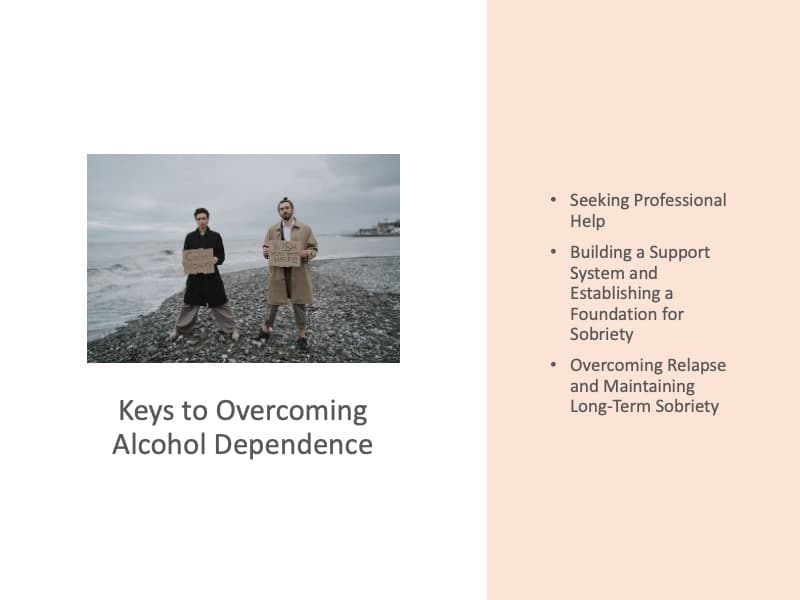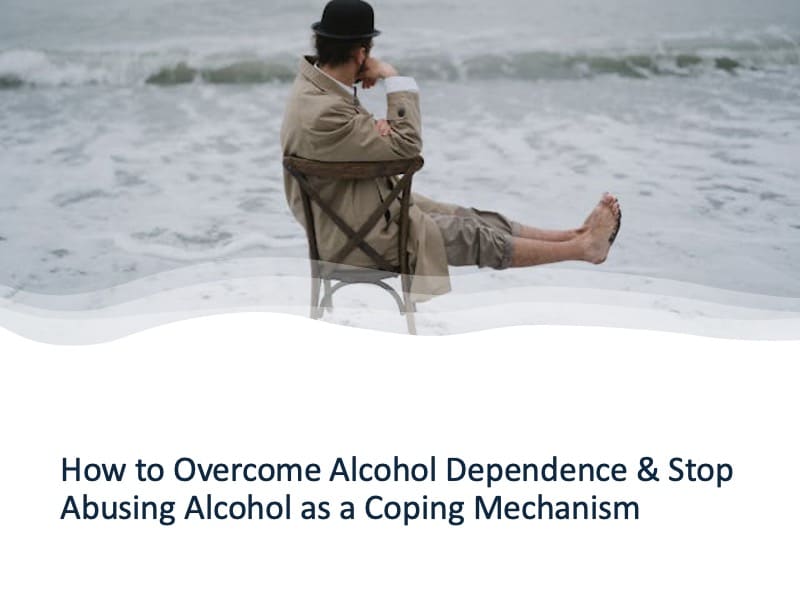How to Overcome Alcohol Dependence & Stop Abusing Alcohol
Life’s challenges often lead people to seek relief in alcohol, using it as a coping mechanism for stress, sadness, or pain.
While alcohol may offer a temporary escape, it can quickly become a crutch that complicates problems further.
Breaking free from alcohol dependence involves understanding its roots, seeking professional help, and building sustainable strategies for long-term recovery.
Understanding Alcohol Dependence
Alcohol dependence often begins subtly, turning occasional drinking into a habitual response to emotional distress.
Recognizing this pattern is essential for initiating recovery.
Identifying the Root Causes of Alcohol Reliance
Underlying factors such as workplace stress, relationship issues, or unresolved trauma often drive dependence.
These stressors create a cycle where alcohol is used to avoid problems, only to exacerbate them over time.
Recognizing the Cyclical Nature of Dependence
Alcohol dependence often operates in a destructive loop: drinking to escape emotional pain leads to guilt and further emotional turmoil.
Breaking this cycle starts with acknowledging its impact and seeking ways to address the core issues without alcohol.
Related Reading: 10 Red Flags for Substance-Induced Anxiety Disorder
Keys to Overcoming Alcohol Dependence

Overcoming alcohol dependence requires a multifaceted approach that addresses both the physical and emotional aspects of addiction.
By understanding the root causes, seeking professional help, and developing healthier coping mechanisms, individuals can break free from the grip of alcohol and build a more balanced, fulfilling life.
This journey is not without challenges, but with the right strategies and finding the right support, long-term sobriety is achievable and transformative.
Seeking Professional Help: A Vital Step Toward Alcohol Dependence Recovery
Recognizing when to get help for addiction is a crucial step in overcoming alcohol dependence or any other type of addiction.
Professional guidance can provide the tools and strategies necessary to break free from alcohol dependence.
The Importance of Expert Support
Therapists and support groups offer insights that empower individuals to recognize harmful behaviors and develop healthier coping mechanisms.
They also create a safe space to confront and work through personal struggles.
Finding the Right Therapist or Support Group
Therapists who specialize in addiction and support groups like Alcoholics Anonymous can provide invaluable assistance.
These resources connect individuals with others who share similar experiences, fostering a sense of belonging and mutual understanding.
Navigating Initial Treatment
Early treatment stages may be uncomfortable as they involve confronting difficult emotions.
However, setting realistic goals and celebrating small victories builds momentum toward long-term recovery.
Building a Support System and Establishing a Foundation for Sobriety
A strong support network plays a crucial role in maintaining sobriety and fostering resilience during challenging times.
The Power of Community
Surrounding oneself with supportive friends, family, and peers from recovery groups creates a positive environment that nurtures growth and accountability.
Creating a Routine That Supports Sobriety
Structured daily routines that include work, exercise, hobbies, and therapy can redirect energy into productive habits, replacing old, harmful behaviors with healthier ones.
Overcoming Relapse and Maintaining Long-Term Sobriety
Sobriety is a lifelong commitment that requires preparation and adaptability, especially when faced with triggers or cravings.
Understanding and Managing Triggers
Identifying situations, people, or emotions that tempt one to drink is essential. Developing strategies to navigate these triggers helps prevent relapse.
For example, meals and social situations can be difficult for many people, making it critical to learn how to enjoy meals without alcohol while trying to overcome alcohol dependence.
Developing a Relapse Prevention Plan
A comprehensive plan that includes support group outreach, mindfulness practices, and engaging in fulfilling activities can mitigate the risk of relapse.
Tools for Managing Cravings
Techniques like deep breathing, journaling, physical activity, or meditation can help manage cravings and maintain focus during moments of vulnerability.
The Rewards of Sobriety: Embracing a New Chapter
Sobriety opens the door to physical, emotional, and spiritual growth, offering a chance to rediscover life’s joys.
Improved Physical and Mental Health
Eliminating alcohol leads to better sleep, increased energy, and sharper mental clarity. These improvements create a strong foundation for a healthier, more vibrant life.
Rediscovering Passions and Living Fully
Without alcohol clouding judgment, hobbies and relationships take center stage. This newfound perspective fosters genuine connections and an appreciation for life’s simple pleasures.
Final Thoughts: Hope, Healing, and Continued Growth
Recovery from alcohol dependence is a transformative journey. It requires courage, patience, and a commitment to self-care.
Change is possible for anyone struggling with alcohol dependence. Seeking help and connecting with a support network can pave the way for a brighter future.
Sobriety is not a destination but a continuous journey. Maintaining self-care routines, engaging with supportive communities, and celebrating progress are essential for long-term success.
Embracing this journey brings profound rewards, fostering resilience, and enriching every aspect of life.
Read Next: Alcohol & Sleep – How Drinking Wrecks Your Rest & Recovery
This website does not provide medical advice. This website site does contain affiliate links, and purchases may earn a commission.
Read my Medical Disclaimer, Review Disclaimer, and Publishing Policies for more details. Use of this site indicates acceptance of these terms.



